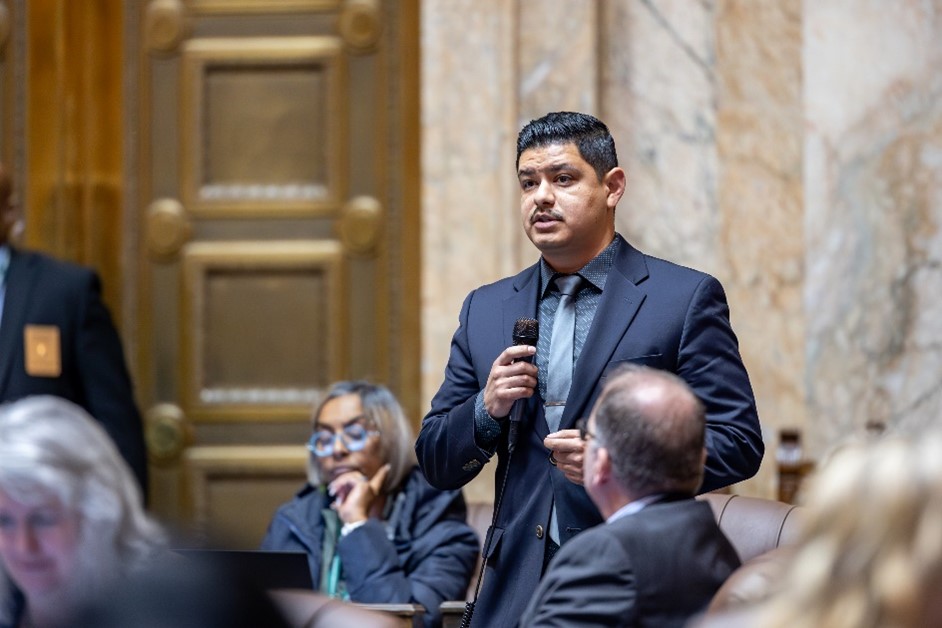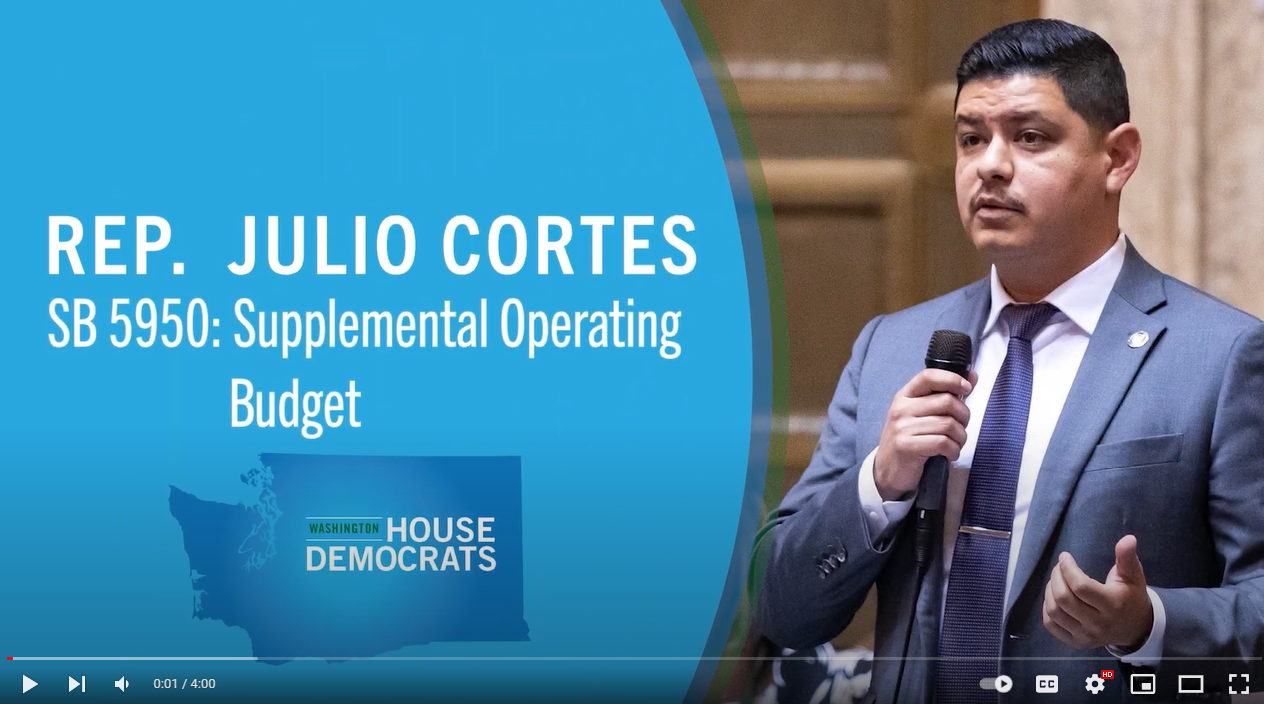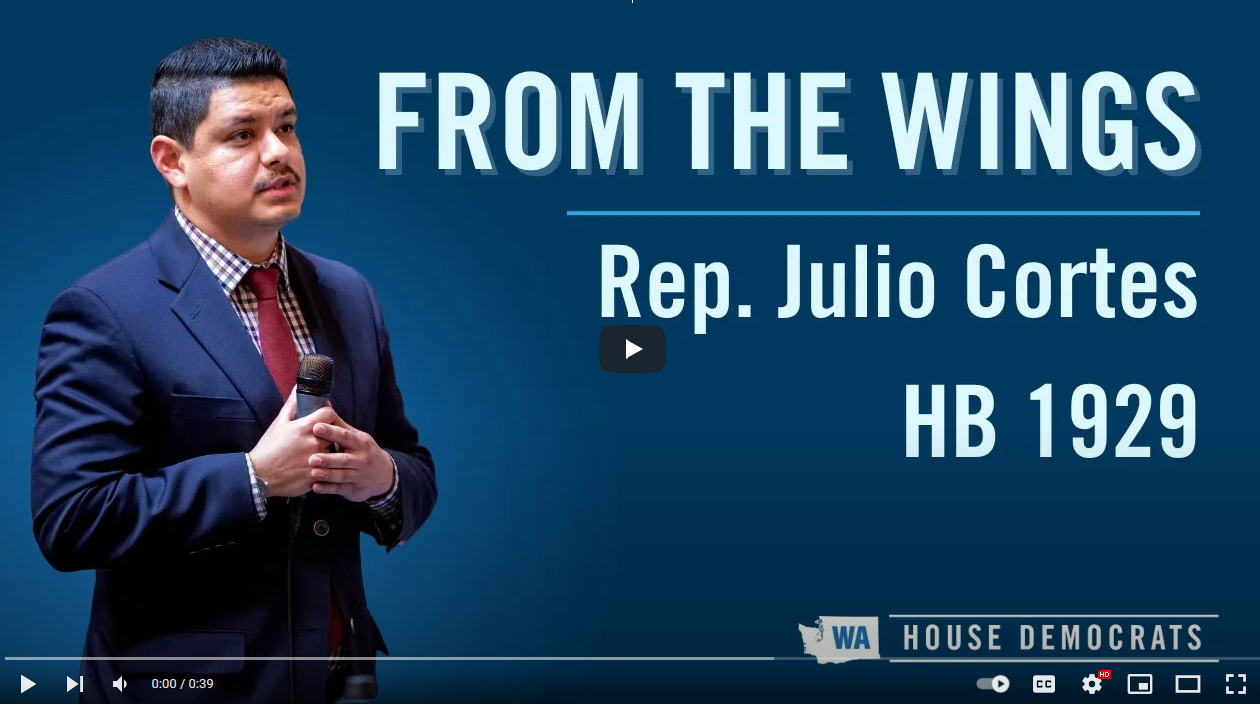Friends and neighbors,
March 7th marks the last day of the legislative session under the state constitution, also known as sine-die. Over the last ten days, we’ve passed numerous bills. To give you a screenshot of our cumulative work, the House has passed a total of 452 bills this session. Over 347 of those bills have passed with bipartisan support.

By close of business today, all proposed legislation, including the 2024 supplemental budgets, must have passed both chambers to be sent to the governor for enactment. Below is an overview of investments and major areas of focus in this year’s three budgets. I hope you find it useful!
Investing in Our Communities:
A $1.3 billion supplemental construction budget prioritizes addressing homelessness, creating affordable housing, expanding early learning centers, and bolstering mental health facilities. Partnerships with tribal healthcare promote inclusivity and extend services to underserved communities. Funding comes from a diverse range of sources, including the Climate Commitment Act, demonstrating a commitment to both people and the environment. This recognizes the interconnectedness of challenges and aims to build a stronger, healthier Washington.
Supporting Families and Our Future:
Building on economic recovery, the supplemental operating budget bolsters existing investments in education, childcare, and affordable housing. It supports families at various stages, from students to parents needing childcare, and young adults pursuing higher education. The budget prioritizes investments in a shared future, including clean air and water, funding childcare with capital gains tax revenue, and ensuring quality long-term care.
I proudly supported the supplemental operating budget because it directly empowers programs that provide critical assistance, like emergency shelters, transitional housing, and food banks.
This budget goes beyond fulfilling our moral obligation as a state; it makes sound economic sense. By addressing homelessness proactively, we reduce dependence on public services down the line. This budget isn’t just an investment in essential support for our youth; it also invests in our elders, food assistance programs, and our most vulnerable populations. Ultimately, this budget will save lives.
I encourage you to watch my remarks on the House floor below to learn more.
Addressing Transportation Challenges:
A $14.3 billion supplemental transportation budget tackles infrastructure needs, upgrades ferries, and addresses rising traffic fatalities. Funding comes from a combination of federal sources, Climate Commitment Act auctions, and existing programs.
The budget prioritizes infrastructure improvements, including bridge replacements, fish passage repairs, and highway maintenance funding. Significant allocations support ferry construction, maintenance, workforce development, and funding for new hybrid-electric models. A $340 million boost supports climate action, targeting underserved and tribal communities, and funding clean transportation initiatives.
Recognizing the 2023 traffic fatality increase, the budget allocates funds for traffic management, law enforcement, and infrastructure improvements. Speed camera considerations for construction zones and cities are also being explored. This budget reflects the state’s commitment to tackling transportation challenges, promoting clean options, and ensuring safer roads.
Bills Passed
Last week, the Senate passed my bill, House Bill 1530, to the Governor to be signed into law. Under the legislation lawful permanent residents can apply to become police officers and deputy prosecutors. This addresses staffing shortages and improves diversity in law enforcement and the justice system.
In addition, House Bill 1929 was passed by the Senate. To address the 80% of young adults leaving inpatient treatment and entering homelessness each year, this bill would establish the Post-Inpatient Housing Program. Supportive programs like this will help young adults achieve stable housing, and provide behavioral health services, peer mentorship, and medication management. Participants also receive help building individualized plans for long-term housing, education, employment, and overall well-being. You can learn more about HB 1929 by clicking here or on the image below.
One bill I’m particularly excited to see pass the legislature is Senate Bill 5908, a companion to my bill HB 2218 to provide extended foster care services to youth 18 to 21. Young people aging out of foster care often face significant challenges without a support network. By providing voluntary extended foster care, we can remove barriers and offer essential support to youth who urgently need it. Success stories and proven data, like the Washington State Institute for Public Policy’s findings, show that extended foster care programs have positive impacts and provide a great return on investment for our communities. To hear more of my thoughts on this bill, click here.
Upcoming Town Hall
Several issues are affecting our community. From economic stability and education to housing and behavioral health, the 2024 legislative session has seen significant progress in these areas. I am excited to share an in-person update on this progress and hear your perspectives on the issues most important to you. Please join me and Rep. Fosse on April 21st, from 1 – 2:30 PM at Everett Community College’s Henry M. Jackson Conference Center. I hope to see you there!
Sincerely/Atentamente,

State Representative Julio Cortes
Representante Estatal Julio Cortés


